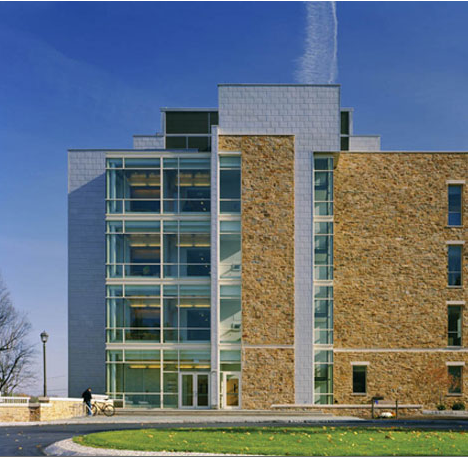Preparation for Graduate Studies

Students preparing for graduate studies in biology should take at least one year each of calculus and organic chemistry and should have knowledge of a foreign language and computing. Departmental honors are determined on the basis of distinguished achievement in coursework and in the Senior Thesis.
Many career opportunities are available to students who obtain a Ph.D. in a specialized area of biology. For example, if you are interested in teaching and/or doing research at the college/university level or in industry, a Ph.D. is typically required. A Ph.D. would be of benefit in some other (non-research) positions in industry and Ph.D.-level biological scientists also can fill important needs in the areas of public policy, law, and teaching at other levels (informal science education, junior-college teaching, etc.).
Most Ph.D. programs in the biological sciences provide a tuition waiver and pay stipends to cover living expenses to enrolled students. Completing a Ph.D. usually takes about five years, most of which is spent performing research. Most programs begin with a year or two of course work, during which a research lab is identified through a series of research rotations. Teaching assistantships are often part of the training. Generally, in addition to completing a Ph.D., most Ph.D. biological scientists spend several years (2-4) as post-doctoral fellows, performing additional research, often to specialize further in their research area before seeking a faculty position or another job. It is no longer common or necessary for those who plan to get a Ph.D. first to complete a Master's degree.
Graduate schools vary greatly in quality, and it is wise to research each school prior to submitting an application. Several web sites (listed below) may be useful in your search. In addition, you should discuss your interests with faculty members, especially those in the area that you wish to pursue. They can give you additional information about schools and faculty members that you may have included or omitted from your list. Finally, you should request more information from the schools on your wish list to research specific programs and individual faculty.
http://www.petersons.com/GradChannel (has Peterson’s Guide to Graduate Schools online)
http://www.GradSchools.com (Grad School- Biology web site, help finding the right biology grad program).
http://www.andp.org (Association of Neuroscience list of departments & programs)
http://www.gre.org/ (listing of GRE information, including prices, deadlines, & locations)
http://www.gradschools.com (look up graduate programs by school or by subject)
http://www.hamilton.edu/college/career/experience (resource for internships and summer research)
Admission Office



